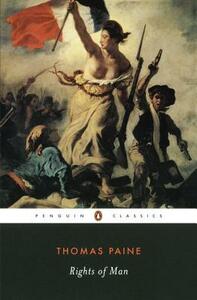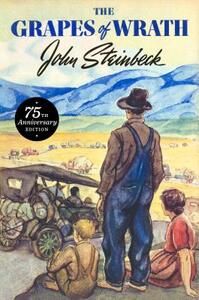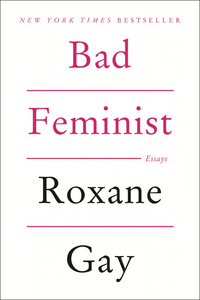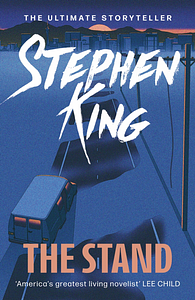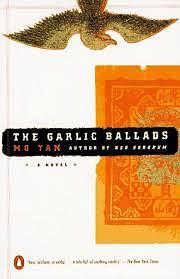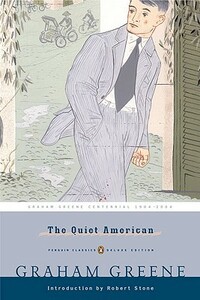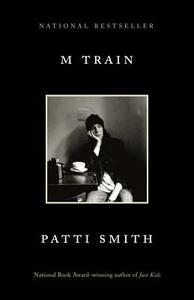Take a photo of a barcode or cover
kevin_shepherd's Reviews (563)
"It is interesting to contemplate a tangled bank, clothed with many plants of many kinds, with birds singing on the bushes, with various insects flitting about, and with worms crawling through the damp earth, and to reflect that these elaborately constructed forms, so different from each other, and dependent upon each other in so complex a manner, have all been produced by laws acting around us." ~Charles Darwin
It's fairly obvious that Benjamin Farrington has a love/hate relationship with Charles Darwin. What begins as a succinct and reverent biography detailing Darwin's youth, his time at Cambridge, and his voyage on the H.M.S. Beagle, starts to morph into disparaging critique in the chapter detailing On the Origin of Species [Chapter Six]. And by the time Farrington synopsizes The Descent of Man [Chapter Seven], this is less "What Darwin Really Said" and more "What Farrington Really Thinks."
"The most brilliant observer still needs to have a mental grasp of the subject of his investigations. This Darwin had in a unique degree in the geological and biological sphere: he was a superb naturalist. But it deserted him in the human sphere. He was a poor philosopher."
It's not that Farrington is necessarily wrong, but being a theist professor of philosophy writing in 1966, with 1966 sensibilities, certainly slanted his critique of an agnostic naturalist writing in 1871, with 1871 sensibilities.
"His enthusiasm for nature is infectious, but when [Darwin] strays beyond the bounds of natural philosophy, his opinions are feeble and fluctuating. More often than not he resorts to hollow-sounding platitudes which are a poor substitute for firm convictions."
I don't think anyone disputes the assertion that Darwin's ideas were sometimes flawed, but one could make the same assertion about Newton, Copernicus, Galileo... Farrington himself proselytizes theories and terms that have now been abandoned or fallen into disuse [*see: homo faber]. He'd be an easy target, should one chose to nitpick and castigate.
If you're looking for biased criticism of Charles Darwin without reverting to full blown evangelical lunacy, this might be a good place to start.
It's fairly obvious that Benjamin Farrington has a love/hate relationship with Charles Darwin. What begins as a succinct and reverent biography detailing Darwin's youth, his time at Cambridge, and his voyage on the H.M.S. Beagle, starts to morph into disparaging critique in the chapter detailing On the Origin of Species [Chapter Six]. And by the time Farrington synopsizes The Descent of Man [Chapter Seven], this is less "What Darwin Really Said" and more "What Farrington Really Thinks."
"The most brilliant observer still needs to have a mental grasp of the subject of his investigations. This Darwin had in a unique degree in the geological and biological sphere: he was a superb naturalist. But it deserted him in the human sphere. He was a poor philosopher."
It's not that Farrington is necessarily wrong, but being a theist professor of philosophy writing in 1966, with 1966 sensibilities, certainly slanted his critique of an agnostic naturalist writing in 1871, with 1871 sensibilities.
"His enthusiasm for nature is infectious, but when [Darwin] strays beyond the bounds of natural philosophy, his opinions are feeble and fluctuating. More often than not he resorts to hollow-sounding platitudes which are a poor substitute for firm convictions."
I don't think anyone disputes the assertion that Darwin's ideas were sometimes flawed, but one could make the same assertion about Newton, Copernicus, Galileo... Farrington himself proselytizes theories and terms that have now been abandoned or fallen into disuse [*see: homo faber]. He'd be an easy target, should one chose to nitpick and castigate.
If you're looking for biased criticism of Charles Darwin without reverting to full blown evangelical lunacy, this might be a good place to start.
“Heav'n has no rage, like love to hatred turn'd, nor hell a fury, like a woman scorn'd” ~William Congreve, 1697
The gothic aberration that is Miss Havisham is, for me, the real catalyst of all that is wickedly wonderful about Great Expectations. The imagery of a decrepit old woman wondering about a dilapidated old mansion, in a moldering old wedding dress, is the epitome of despondency and despair. Who hasn’t had their heart broken at some point in their lives and thought, if only briefly, “from this I will never recover...”? Havisham is the passing made permanent. She is that train wreck that garners crowds of onlookers; a walking, talking, what-the-f*ck of humanity. I am in love.
The gothic aberration that is Miss Havisham is, for me, the real catalyst of all that is wickedly wonderful about Great Expectations. The imagery of a decrepit old woman wondering about a dilapidated old mansion, in a moldering old wedding dress, is the epitome of despondency and despair. Who hasn’t had their heart broken at some point in their lives and thought, if only briefly, “from this I will never recover...”? Havisham is the passing made permanent. She is that train wreck that garners crowds of onlookers; a walking, talking, what-the-f*ck of humanity. I am in love.
"I talk to God, but the sky is empty" ~Sylvia Plath
Somewhat less antagonistic than the title would suggest, retired journalist Rick Snedeker's meticulously researched Holy Smoke is both a history and an indictment of American fundamentalism. Spanning over 500 years (1492 - 2020), Snedeker chronicles the ebb and flow of religious fervor in America and its impact on social and political institutions.
1620's - Contrary to what we, as American children, were taught in elementary school, the "Pilgrims" were not stalwart bastions of civility and tolerance. In fact, one of the main reasons they set up shop in the colonies is because they were reviled in both their native England and their adopted country, the Netherlands. Known then as Brownists, they were ferverently opposed to religious freedom (unless of course your faith of choice was their faith of choice).
1630's - Enter John Winthrop and his hundreds of English Puritans who established the Massachusetts Bay Colony that is now the city of Boston. Nestled in amongst the sundry items of baggage they imported is the notion that poverty is a sin. Their belief that the poor are lazy and inherently less pious is still a component of right-wing American philosophy.
"the haunting fear that someone, somewhere, may be happy" ~H.L. Mencken, describing Puritanism
1631 - Roger Williams arrives in Massachusetts and American colonial morality sees a positive uptick, if only briefly. Williams initially intended to be a Protestant missionary but, after witnessing the plight of Native Americans, he became distraught and disillusioned. Williams spoke out against Puritan authorities, many of whom accused him of heresy.
1636 - The Massachusetts Bay Colony banishes Roger Williams for "diverse, new and dangerous opinions."
Can you see a pattern emerging here?
Snedeker goes on to chronicle the role sanctimonious entities and pious underpinnings played in the course of American history. The Salem Witch Trials of 1692. Nat Turner's slave rebellion in 1831. The Ghost Dance movement of 1870. The massacre at Wounded Knee in 1890. All pieces of the complicated mosaic that is our collective identity. With so many skeletons in our closet, it's no wonder we're screwed-up.
Are we hopelessly lost? Snedeker doesn't think so. He has suggestions for our recovery (good ones) but he admits that our climb out of the abyss, IF it happens, will be slow and perilous.
Somewhat less antagonistic than the title would suggest, retired journalist Rick Snedeker's meticulously researched Holy Smoke is both a history and an indictment of American fundamentalism. Spanning over 500 years (1492 - 2020), Snedeker chronicles the ebb and flow of religious fervor in America and its impact on social and political institutions.
1620's - Contrary to what we, as American children, were taught in elementary school, the "Pilgrims" were not stalwart bastions of civility and tolerance. In fact, one of the main reasons they set up shop in the colonies is because they were reviled in both their native England and their adopted country, the Netherlands. Known then as Brownists, they were ferverently opposed to religious freedom (unless of course your faith of choice was their faith of choice).
1630's - Enter John Winthrop and his hundreds of English Puritans who established the Massachusetts Bay Colony that is now the city of Boston. Nestled in amongst the sundry items of baggage they imported is the notion that poverty is a sin. Their belief that the poor are lazy and inherently less pious is still a component of right-wing American philosophy.
"the haunting fear that someone, somewhere, may be happy" ~H.L. Mencken, describing Puritanism
1631 - Roger Williams arrives in Massachusetts and American colonial morality sees a positive uptick, if only briefly. Williams initially intended to be a Protestant missionary but, after witnessing the plight of Native Americans, he became distraught and disillusioned. Williams spoke out against Puritan authorities, many of whom accused him of heresy.
1636 - The Massachusetts Bay Colony banishes Roger Williams for "diverse, new and dangerous opinions."
Can you see a pattern emerging here?
Snedeker goes on to chronicle the role sanctimonious entities and pious underpinnings played in the course of American history. The Salem Witch Trials of 1692. Nat Turner's slave rebellion in 1831. The Ghost Dance movement of 1870. The massacre at Wounded Knee in 1890. All pieces of the complicated mosaic that is our collective identity. With so many skeletons in our closet, it's no wonder we're screwed-up.
Are we hopelessly lost? Snedeker doesn't think so. He has suggestions for our recovery (good ones) but he admits that our climb out of the abyss, IF it happens, will be slow and perilous.
“It is by distortedly exulting some men that others are distortedly debased.”
Thomas Paine’s Rights of Man is to the disposition of freedom and liberty what Charles Darwin’s On the Origin of Species is to the evolution and natural selection of life. Yes, it is imperfect, but it put forth a coalesced set of principles that, quite literally, changed the world.
“...though man may be kept ignorant, he cannot be made ignorant. The mind, in discovering truth, acts in the same manner as it acts through the eye in discovering objects; when once any object has been seen, it is impossible to put the mind back to the same condition it was in before it saw it.”
Taken in the context of his time, Paine was a radical. He was an advocate of representative republics in an age of kings. Paine championed both the American and the French revolutions and was an outspoken opponent of monarchy, theocracy and slavery.
In my opinion, Thomas Paine is the embodiment of eighteenth century enlightenment. He was, at once, a political theorist, a philosopher, an activist, and a revolutionary. The fact that he is often little more than a footnote in the high school textbooks of American history is a travesty and a shameful embarrassment.
“My country is the world, and my religion is to do good.”
Thomas Paine’s Rights of Man is to the disposition of freedom and liberty what Charles Darwin’s On the Origin of Species is to the evolution and natural selection of life. Yes, it is imperfect, but it put forth a coalesced set of principles that, quite literally, changed the world.
“...though man may be kept ignorant, he cannot be made ignorant. The mind, in discovering truth, acts in the same manner as it acts through the eye in discovering objects; when once any object has been seen, it is impossible to put the mind back to the same condition it was in before it saw it.”
Taken in the context of his time, Paine was a radical. He was an advocate of representative republics in an age of kings. Paine championed both the American and the French revolutions and was an outspoken opponent of monarchy, theocracy and slavery.
In my opinion, Thomas Paine is the embodiment of eighteenth century enlightenment. He was, at once, a political theorist, a philosopher, an activist, and a revolutionary. The fact that he is often little more than a footnote in the high school textbooks of American history is a travesty and a shameful embarrassment.
“My country is the world, and my religion is to do good.”
My introduction to Steinbeck. The book itself was a gift from a submarine shipmate who was both surprised and disappointed that I, a native Okie, had never read a word of it. Every night for about a week I would retreat to my bunk after my watch and devour a chapter or two, or three. By the time I finished the final paragraph, the one describing Rose of Sharon’s ultimate act of selflessness, I was awestruck. I came to love and appreciate The Grapes Of Wrath somewhere under the North Atlantic, my oddly nautical connection to a very terrestrial masterpiece.
Show me a strong black woman with opinions and I'll show you a line of detractors ready to fill her web page, her blog, and her book reviews with negative comments and thinly veiled slurs.
The more Roxane Gay I read the more Roxane Gay I want to read. Not because we're so much alike, but because we're so different and because we took such different paths (I being a fifty-something privileged white man) to reach the same conclusions. As I consumed Bad Feminist I found myself literally nodding in agreement, raising eyebrows in occasional astonishment, laughing out loud at her jokes and shedding a tear or twenty in painful empathy.
Gay, much like Lindy West, gifts me a perspective I would not otherwise have had. Every essay, every insight, ultimately becomes a piece of the mosaic of my worldview.
The more Roxane Gay I read the more Roxane Gay I want to read. Not because we're so much alike, but because we're so different and because we took such different paths (I being a fifty-something privileged white man) to reach the same conclusions. As I consumed Bad Feminist I found myself literally nodding in agreement, raising eyebrows in occasional astonishment, laughing out loud at her jokes and shedding a tear or twenty in painful empathy.
Gay, much like Lindy West, gifts me a perspective I would not otherwise have had. Every essay, every insight, ultimately becomes a piece of the mosaic of my worldview.
King is hit and miss for me. He has written both one of my favorite books and one of my least favorite books. The Stand is one of my favorites.
"She smacked him on the rear. "How am I supposed to stick a needle in something this tight?" What more could I ask of life? An aristocratic woman like this doesn't even care how dirty I am. She smacked my grimy ass with her clean hand! I could die here and now with no regrets." (pg. 167)
Irréversible is a fantastic 2002 French film. Have you seen it? It is stylistic and artful, exquisitely scripted and beautifully composed. The first time I watched it I was awestruck. To this day it remains one of my all time favorite films... It is also unflinchingly brutal. I have never watched it a second time, I have no desire to. That is how I feel about The Garlic Ballads.
Mo Yan has taken the genre of historical fiction to a whole new level. This is truly an art form in which he has few equals. His portrayal of Chinese peasant life in the 20th century reads like a 5th century Greek tragedy. It is hard for me to fathom that such archaic social structures were still functional while I was on the other side of the world wearing parachute pants and listening to Duran Duran.
I absolutely LOVED this novel and I will absolutely NEVER read it again.
Irréversible is a fantastic 2002 French film. Have you seen it? It is stylistic and artful, exquisitely scripted and beautifully composed. The first time I watched it I was awestruck. To this day it remains one of my all time favorite films... It is also unflinchingly brutal. I have never watched it a second time, I have no desire to. That is how I feel about The Garlic Ballads.
Mo Yan has taken the genre of historical fiction to a whole new level. This is truly an art form in which he has few equals. His portrayal of Chinese peasant life in the 20th century reads like a 5th century Greek tragedy. It is hard for me to fathom that such archaic social structures were still functional while I was on the other side of the world wearing parachute pants and listening to Duran Duran.
I absolutely LOVED this novel and I will absolutely NEVER read it again.
Reportedly, the genesis of The Quiet American was a happenstance encounter between author Graham Greene and a prattling, obnoxious, now-anonymous American aid-worker on a road trip from Ben Tre Provence to Saigon, Vietnam in the autumn of 1951. Greene's story is certainly rife with distain for virtually all of its American characters, none of which are particularly quiet, except a dead one. I got the impression that Greene's book title was itself a sarcastic stab, the irony being that the only quiet American is a dead American.
I came to Graham Greene the same way I came to Martin Amis, and Ian McEwan, and P.G. Wodehouse; all via the writings and inferences of the late, great Christopher Hitchens. Hitch has never let me down and Greene is quite possibly the best of them all (so far). This one hits on all cylinders: intrigue, love, espionage, revenge, and an ending that I found enormously satisfying.
I came to Graham Greene the same way I came to Martin Amis, and Ian McEwan, and P.G. Wodehouse; all via the writings and inferences of the late, great Christopher Hitchens. Hitch has never let me down and Greene is quite possibly the best of them all (so far). This one hits on all cylinders: intrigue, love, espionage, revenge, and an ending that I found enormously satisfying.
“Writers and their process. Writers and their books. I cannot assume the reader will be familiar with them all, but in the end is the reader familiar with me? Does the reader wish to be so? I can only hope, as I offer my world on a platter filled with allusions.”
Patti Smith and I have many of the same notions and ideas. We both like to ponder the writings of Plath, the philosophies of Nietzsche, and the enigmas of The Wind-Up Bird Chronicle. Her illustrations are a trove of Polaroid treasures: like Frida Kahlo’s bed and Hermann Hesse’s typewriter and Virginia Woolf’s walking stick. All relics of souls now lost, captured in Smith’s nostalgic photographic style - softly focused and unfiltered.
“One step into a living space and one can sense the centrality of work in a life. Half-empty paper coffee cups. Half-eaten deli sandwiches. An encrusted soup bowl. Here is joy and neglect. A little mescal. A little jacking off, but mostly just work. This is how I live...”
M Train is part memoir, part autobiography, and part journal. Fragments of an interesting life; successes and setbacks; adventures and misadventures; all softly focused and unfiltered.
Patti Smith and I have many of the same notions and ideas. We both like to ponder the writings of Plath, the philosophies of Nietzsche, and the enigmas of The Wind-Up Bird Chronicle. Her illustrations are a trove of Polaroid treasures: like Frida Kahlo’s bed and Hermann Hesse’s typewriter and Virginia Woolf’s walking stick. All relics of souls now lost, captured in Smith’s nostalgic photographic style - softly focused and unfiltered.
“One step into a living space and one can sense the centrality of work in a life. Half-empty paper coffee cups. Half-eaten deli sandwiches. An encrusted soup bowl. Here is joy and neglect. A little mescal. A little jacking off, but mostly just work. This is how I live...”
M Train is part memoir, part autobiography, and part journal. Fragments of an interesting life; successes and setbacks; adventures and misadventures; all softly focused and unfiltered.


